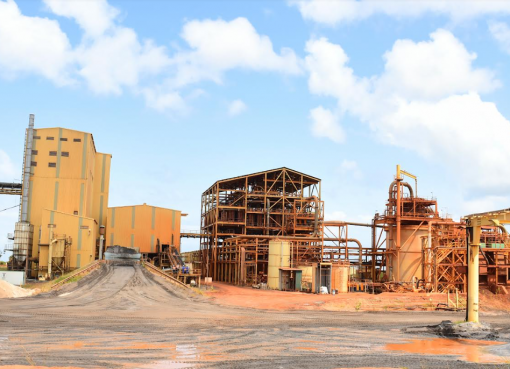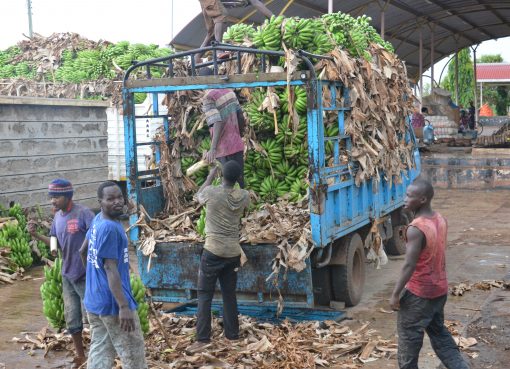Prices of Coffee are currently on the downward trend globally, affecting all coffee producing countries.
Subsequently, Kenya will be joining the other producers through the International Coffee Organization (ICO) during the World Coffee producers’ forum in Brazil in July to discuss the issue.
Giving a status report of Coffee reforms initiated by the Coffee Sub Sector Implementation Committee (CSIC), the
initiative Chairman Prof. Joseph Kieyah said the government is currently working towards reducing production cost for farmers.
Prof. Kieyah said that the government has put inplacestrategies to stimulate more production as part of taming the effects of the decreasing prices to farmers both locally and globally.
“We have a three year subsidy programme where the government will be giving fertilizers, we are rehabilitating our factories and also providing planting materials to farmers,” he said.
Through this initiative, coffee farmers will be able to break even and make more money and in a year or two the business cycle will have turned around.
The current prices, he noted, have decreased to 30 per cent below their 10-year average, thus demoralizing small scale farmers, adding globally the prices have been declining for the last two years.
Prof. Kieyah however, added that other options being pursued by the government is to include publication of new general and coffee exchange regulations, operationalization of the Sh.3billion coffee cherry revolving fund, institutional support, intensive marketing of Kenya coffee and audit of coffee farmers’ cooperative societies.
“We are not enjoying the economy of scale and out of 500 cooperatives that we have , some are not economically viable and therefore we need to find a way to consolidate this and it can only be done by conducting a forensic audit in order to understand the level of debt within the sector”, Prof. Kieyah said .
The cherry revolving fund, he noted is to be operationalized July this year, with farmers being advanced the loans at an interest rate of three per cent.
The committee has so far published the Crops (Coffee) General Regulations 2019 and the Capital Markets (Coffee Exchange Regulations 2019).
Prof. Kieyah further urged Kenyan to consume coffee saying that competitors such as Ethiopia and Columbia consume most of their coffee domestically.
“In Kenya, we only consume five percent and the rest which is 95 percent is subjected to international prices. If
something happened we are the ones affected more because of not having a way of cushioning ourselves. We need to increase domestic consumption by strengthening the link between youth and old,” he said.
On regulations of coffee, the Chairman said they will soon be forwarded to the Cabinet Secretaries of Agriculture and Treasury respectively and later to the Attorney General for legal scrutiny before being gazetted.
“In the next two or three weeks we are hoping that the regulations will be considered and gazetted so that we can start in terms of the sector investment and also doing contracts,” he said
Currently, the coffee production is oscillating between 40,000 and 50,000 metric tonnes compared to about 130,000 produced in 1987/88 coffee year. Equally, area under coffee has for the two decades dropped to 114,500 hectares from 170,000 hectares a factor that has also contributed to decrease in production.
Cost of production coupled with low production has for long denied farmers high earnings, thus leading them to seek other alternatives like avocado and macadamia and dairy farming.
Farmers in the coffee growing regions have in the recent past embarked on inter -cropping macadamia and avocados with coffee, owing to the two crops attracting high prices internationally.
If the recommendation by the coffee sub sector committee commissioned by the president will be adopted, then the farmers will directly sell their beans to customers, without necessarily passing through the auction.
According to the International Coffee Organization (ICO) composite indicator prices of coffee reached just over 98 US cents per pound (USD2.156 per kilogramme).
It further fell by 3.2 per cent to 94.42 US cents per pound (USD2.1 per kg) in April 2019, with ICO, saying that was the lowest monthly average since July 2006 when the price reached 88.57 US cents (USD1.95per kg).
By Wangari Ndirangu




